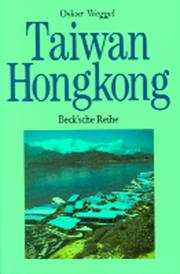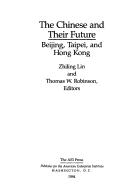| Listing 1 - 10 of 233 | << page >> |
Sort by
|
Book
ISBN: 9264069429 Year: 2008 Publisher: Paris : OECD Publishing,
Abstract | Keywords | Export | Availability | Bookmark
 Loading...
Loading...Choose an application
- Reference Manager
- EndNote
- RefWorks (Direct export to RefWorks)
Book
ISBN: 9264466193 Year: 2019 Publisher: Paris : OECD Publishing,
Abstract | Keywords | Export | Availability | Bookmark
 Loading...
Loading...Choose an application
- Reference Manager
- EndNote
- RefWorks (Direct export to RefWorks)
Under Action 14, countries have committed to implement a minimum standard to strengthen the effectiveness and efficiency of the mutual agreement procedure (MAP). The MAP is included in Article 25 of the OECD Model Tax Convention and commits countries to endeavour to resolve disputes related to the interpretation and application of tax treaties. The Action 14 Minimum Standard has been translated into specific terms of reference and a methodology for the peer review and monitoring process. The minimum standard is complemented by a set of best practices. The peer review process is conducted in two stages. Stage 1 assesses countries against the terms of reference of the minimum standard according to an agreed schedule of review. Stage 2 focuses on monitoring the follow-up of any recommendations resulting from jurisdictions' stage 1 peer review report. This report reflects the outcome of the stage 1 peer review of the implementation of the Action 14 Minimum Standard by Hong Kong, China.
Book
ISBN: 926492731X Year: 2021 Publisher: Paris : OECD Publishing,
Abstract | Keywords | Export | Availability | Bookmark
 Loading...
Loading...Choose an application
- Reference Manager
- EndNote
- RefWorks (Direct export to RefWorks)
Under Action 14, countries have committed to implement a minimum standard to strengthen the effectiveness and efficiency of the mutual agreement procedure (MAP). The MAP is included in Article 25 of the OECD Model Tax Convention and commits countries to endeavour to resolve disputes related to the interpretation and application of tax treaties. The Action 14 Minimum Standard has been translated into specific terms of reference and a methodology for the peer review and monitoring process. The peer review process is conducted in two stages. Stage 1 assesses countries against the terms of reference of the minimum standard according to an agreed schedule of review. Stage 2 focuses on monitoring the follow-up of any recommendations resulting from jurisdictions' stage 1 peer review report. This report reflects the outcome of the stage 2 peer monitoring of the implementation of the Action 14 Minimum Standard by Hong Kong, China.

ISBN: 3406351697 Year: 1992 Publisher: München C.H.Beck
Abstract | Keywords | Export | Availability | Bookmark
 Loading...
Loading...Choose an application
- Reference Manager
- EndNote
- RefWorks (Direct export to RefWorks)
Book
ISBN: 1498308481 1498389562 1498384439 Year: 2014 Publisher: Washington : International Monetary Fund,
Abstract | Keywords | Export | Availability | Bookmark
 Loading...
Loading...Choose an application
- Reference Manager
- EndNote
- RefWorks (Direct export to RefWorks)
Offshore use of the renminbi expanded rapidly in Hong Kong SAR as China sought to develop an international role for its currency while maintaining capital controls. This prompts two questions addressed in this paper: How far advanced is renminbi internationalization? And, what role does Chinese capital account liberalization play? The first is addressed by testing the extent of integration of offshore and onshore markets for the renminbi using a Threshold Autoregression (TAR) model and finds that there are substantial unexploited arbitrage opportunities. A VAR model is used to indentify factor
Book
ISBN: 9783111063898 3111063895 3111063259 Year: 2023 Publisher: Berlin/Boston : Walter de Gruyter GmbH,
Abstract | Keywords | Export | Availability | Bookmark
 Loading...
Loading...Choose an application
- Reference Manager
- EndNote
- RefWorks (Direct export to RefWorks)
Die Publikation stellt den Hongkonger Philosophen Lao Sze-kwang (1927-2012) anhand seiner kulturtheoretischen Schriften und mit Blick auf seine Positionierung liberaler Werte vor. Lao gehörte zu jenen akademischen Philosophen, die ab den 1950er Jahren auch am öffentlichen Diskurs teilnahmen, sowohl das koloniale Umfeld als auch den Kalten Krieg kritisch beleuchteten und vor einer Ideologisierung durch die Kommunistische Partei in der Volksrepublik China und durch die Nationale Volkspartei in Taiwan warnten. Laos Rezeption zeitgenössischer Philosophen wie F. A. Hayek und E. Cassirer, aber auch seine Analysen von G. W. F. Hegel und I. Kant zielen dabei nicht zuletzt auf eine philosophische Neuinterpretation klassischer konfuzianischer Werte. Honkong kommt dabei entgegen einer häufig vorschnell zugeschriebenen, marginalen Rolle im historischen Weltgeschehen die Funktion zu, negative Folgen und positive Möglichkeiten einer globalen Moderne zu bündeln. Die Publikation richtet sich an ein Publikum, das Einblicke in die Neuinterpretation vormoderner konfuzianischer Texte, die Rezeption philosophischer Thesen im chinesischen Sprachraum, sowie die Entstehung liberaler Standpunkte in Hongkong aufgrund der Schriften Lao Sze-kwangs gewinnen möchte. The study focuses on the writings of Hong Kong philosopher Lao Sze-kwang (1927–2012) from the 1950s onward. His work in reception and cultural theory shows how liberal viewpoints were debated in the colonial-influenced environment of the Cold War. In both university and public discourse, Confucian values and ideas were discussed and reinterpreted.
SOCIAL SCIENCE / Regional Studies. --- 20th Century. --- Confucianism. --- Hong Kong. --- Philosophy.
Book
Year: 2023 Publisher: Washington, D.C. : International Monetary Fund,
Abstract | Keywords | Export | Availability | Bookmark
 Loading...
Loading...Choose an application
- Reference Manager
- EndNote
- RefWorks (Direct export to RefWorks)
This 2023 Article IV Consultation discusses that the economic recovery in Hong Kong Special Administrative Region (SAR) stalled in 2022 following a major coronavirus disease 2019 outbreak and U.S. monetary policy tightening. However, in 2023, real gross domestic product is projected to grow by 3.5 percent. The financial system remains resilient and continues to serve as an international financial center, supported by strong institutional frameworks and substantial capital and liquidity buffers. The Linked Exchange Rate System continues to function smoothly, providing a solid anchor to the economy and the financial system, allowing the latter to perform its role as an international financial center. Housing prices, which declined by about 16 percent by end-2022 from the peak in September 2021, have started to recover in early 2023. Near-term risks to the growth outlook are balanced, with systemic risk in the financial sector manageable given significant buffers. A sharper-than-expected global growth slowdown as well as escalation of regional conflicts and resulting disruptions in trade could derail the recovery. A sharp rise in global risk premia amid renewed stress in the global banking system and further tightening of monetary policy in major advanced economies could have adverse spillovers through financial channels.
Periodical
ISSN: 26998319 Year: 1972 Publisher: Hamburg : Das Institut
Abstract | Keywords | Export | Availability | Bookmark
 Loading...
Loading...Choose an application
- Reference Manager
- EndNote
- RefWorks (Direct export to RefWorks)
China --- China. --- Chine. --- Hong Kong. --- Taiwan. --- Politics and government
Book
Year: 2020 Publisher: Ledizioni
Abstract | Keywords | Export | Availability | Bookmark
 Loading...
Loading...Choose an application
- Reference Manager
- EndNote
- RefWorks (Direct export to RefWorks)
As the Covid-19 pandemic strikes hard, protests in Hong Kong appear to have abated. Distant seem the days when yellow umbrellas and balaclavas saturated global media. And yet, just like at the start of what has now come to be known as the 2019 “global protest wave”, Hong Kong remains at the frontline of political contestation worldwide. The protests against the 2019 Hong Kong anti-extradition law unearthed one of the main points of contention between Hong Kong and mainland China. Through the protests, China’s increasingly assertive stance has found a counterweight, revealing how important the city is to Beijing. China’s actions towards Hong Kong might serve as a litmus test for Beijing’s ability to mediate and pacify its neighbourhood. Meanwhile, the Covid-19 pandemic risks further heightening tensions between the Hong Kong and the mainland. What makes Hong Kong so special? To what extent have the protests exacerbated or eased over time? How will the city’s role in mainland China’s outward-looking plans change, if the protests continue?
Economic history. --- Hong Kong (China) --- Economic conditions --- Politics and government

ISBN: 0844738042 Year: 1994 Publisher: Washington D.C. The AEI Press
Abstract | Keywords | Export | Availability | Bookmark
 Loading...
Loading...Choose an application
- Reference Manager
- EndNote
- RefWorks (Direct export to RefWorks)
Chinese reunification question, 1949 --- -China. --- Hong Kong (China) --- Taiwan.
| Listing 1 - 10 of 233 | << page >> |
Sort by
|

 Search
Search Feedback
Feedback About UniCat
About UniCat  Help
Help News
News